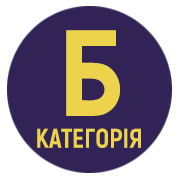PREPARATION OF THE FUTURE PRIMARY SCHOOL TEACHER FOR THE IMPLEMENTATION OF INCLUSIVE EDUCATION TECHNOLOGIES
DOI:
https://doi.org/10.32782/ped-uzhnu/2024-5-5Keywords:
inclusion, psychological readiness, Ukraine, professional readiness, primary school, NUS.Abstract
The article examines and substantiates the level of psychological preparation of teachers to work in an inclusive educational space. The obtained results of the study demonstrated a sufficiently good level of training of future inclusion teachers of primary school, and their readiness for this work, and an independent and conscious choice of the profession of inclusion teacher. The author also clarified the concepts of "inclusion", "psychological readiness"; outlined the specifics of organizing inclusion in Ukraine; determined the requirements for the level and content of the teacher's psychological readiness for professional activity in conditions of inclusion. The relevance of the problem raised in the article is one of the important stages of the teacher's psychological training in the implementation of the ideas of inclusive education, for the successful training of all participants in the educational process. During the research, the author applied theoretical analysis and generalization of scientific and methodical literature on the problem, analysis, comparison, classification, generalization of scientific provisions, philosophical and psychological- pedagogical literature. This made it possible to formulate conceptual approaches to the given problem, to define the conceptual and categorical apparatus and basic scientific and theoretical provisions. Diagnostic, observational, statistical and graphical methods were used from empirical methods. Inclusive education in Ukraine is just beginning its rapid path of formation, implementation and development. This is facilitated by the support of the first lady of the country, the state and local communities. A great contribution is made by the experience of Western countries regarding the implementation and development of inclusion, which we study, and choose something and apply in our country. The development of inclusive education is a way to create a more just and humane society, where every child has the opportunity to receive a quality education and realize their potential. The conducted research, of course, does not provide final answers to all questions related to the training of future teachers of inclusion in the National University of Higher Education. It only outlines certain aspects of this complex and multifaceted problem, opening broad perspectives for further scientific research.
References
Альохіна С. Інклюзивна освіта в Украйні: здобутки, проблеми та перспективи: резюме аналітичного звіту за результатами комплексного дослідження С. Альохіна URL: http://www.twirpx.com/file/974948
Бовкуш К.П. Готовність педагога до інклюзивної освіти / К.П. Бовкуш Педагогічні науки: теорія, історія, інноваційні технології. 2015. №4 (48). C. 3–9.
Закон України «Про вищу освіту» // Закон від 01.07.2014 №1556– VІІ URL: http://vnz.org.ua/
Засенко В. Інклюзивна освіта: стан і перспективи розвитку в Україні/ К.: ФОП Придатченко П.М. 2017. С. 22.
Кучерук О. С. Компетентнісний підхід як основа підготовки майбутнього вчителя до реалізації завдань інклюзивного навчання О. С. Кучерук. URL: http://gnpu.edu.ua/






